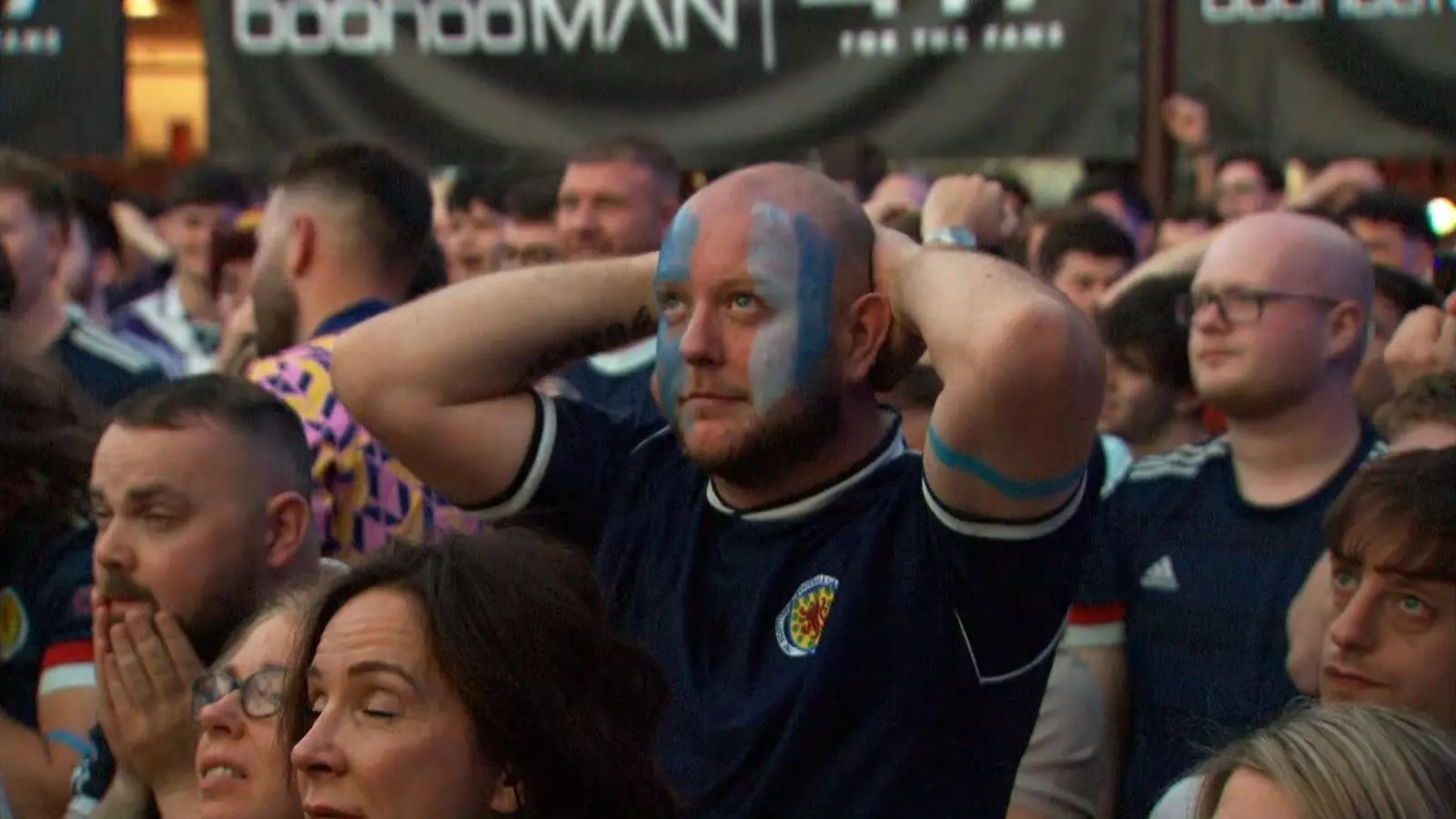As Scotland faced a disappointing exit from the Euros, there was a palpable sense of frustration among the supporters. The anger stemmed not just from the failure to be awarded a penalty, but also from the team’s inability to get a shot on target against Hungary. This lackluster performance left many fans in a state of dismay, with one supporter, Stuart Gray, even going so far as to describe the situation as a “nightmare.” The focus of much of the blame seemed to be directed towards the team’s manager, Steve Clarke, who was criticized for his seemingly negative approach to the game. Fans questioned his tactics, particularly his late substitution in the 75th minute, which left many scratching their heads in disbelief.
Amidst the disappointment, there was a growing clamor for a change in leadership, with many supporters calling for David Moyes to take over as the head coach for the 2026 World Cup qualifying campaign. Moyes, who had recently departed from West Ham, was seen as a more experienced and dynamic option compared to Clarke. The dissatisfaction with Clarke’s performance was evident in the words of fan Cameron MacFarlane, who bluntly stated that the team’s performance was “absolute nonsense.” The lack of aggression and initiative displayed by the team, particularly in the crucial moments of the game, left many feeling let down and disillusioned.
One of the key criticisms leveled against the team was their failure to capitalize on opportunities when it mattered most. Despite dominating possession and creating chances, Scotland struggled to find the composure needed to convert those chances into goals. Clarke himself pointed out the team’s inability to finish in front of goal as a significant factor in their downfall. However, when faced with the disappointment of defeat, Clarke, like many managers before him, resorted to blaming the referee and VAR for not awarding a penalty. This deflection of responsibility only added to the frustration felt by supporters who were left questioning why Scotland always seemed to fall short in major tournaments.
For Scottish fans, the disappointments of this Euros exit were nothing new. With a long history of exiting tournaments at the group stage, the feeling of coming up short once again was all too familiar. Despite notable moments of resilience and determination, the team always seemed to fall short when it mattered most. The inability to progress beyond the group stage and make a significant impact on the international stage was a bitter pill to swallow for supporters who were left wondering if things would ever change for their beloved national team. As they left Germany with only memories of better times away from the stadiums, the frustration and disappointment lingered, painting a stark picture of missed opportunities and unfulfilled potential.
The fall of Scotland in the Euros was a sobering reminder of the challenges and shortcomings faced by the national team. While the blame game ensued and calls for change grew louder, it was evident that a deeper introspection was needed to address the recurring issues that plagued the team. As the dust settled on another disappointing campaign, the hope remained that lessons would be learned and improvements made to ensure a brighter future for Scottish football.

Leave a Reply